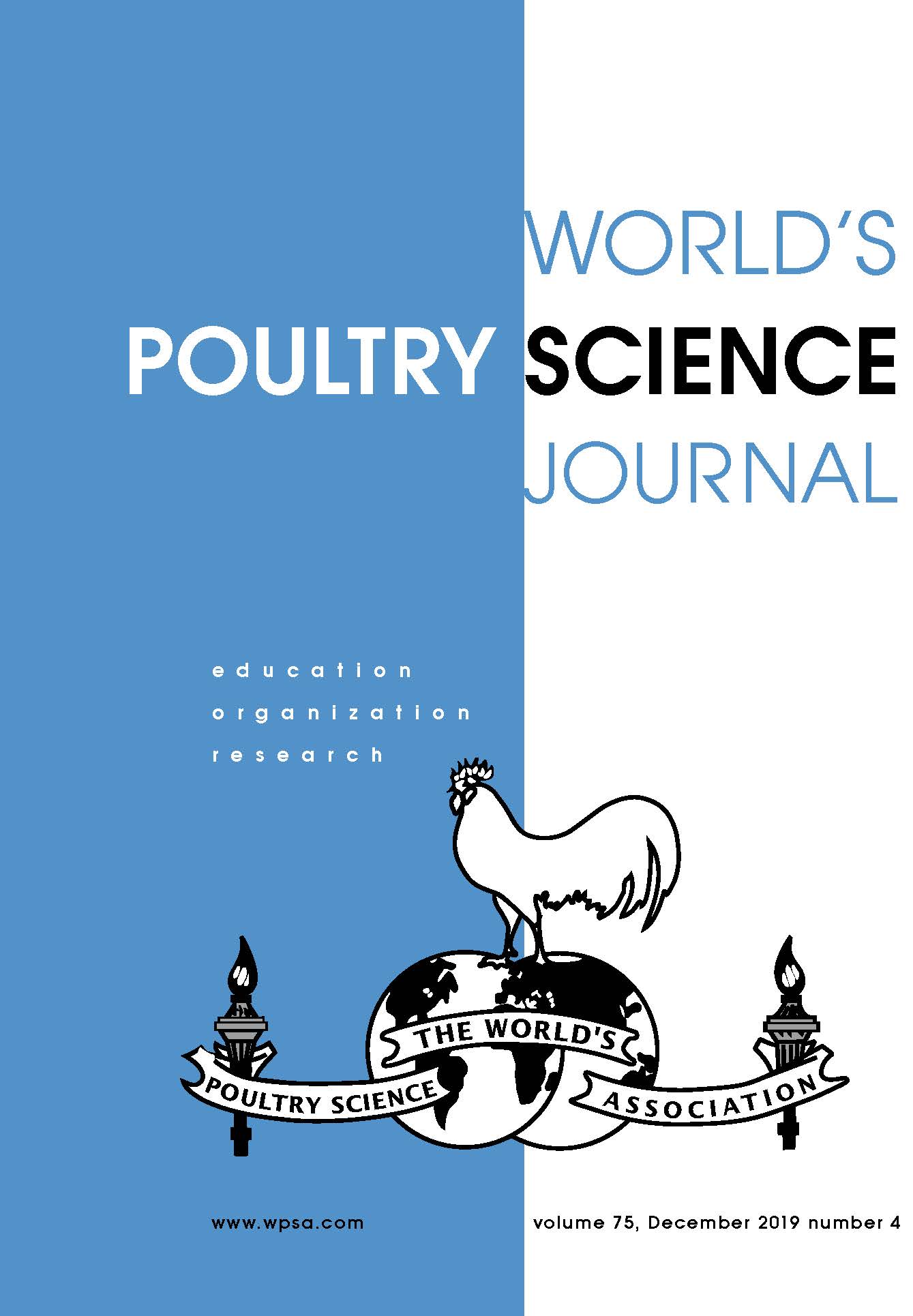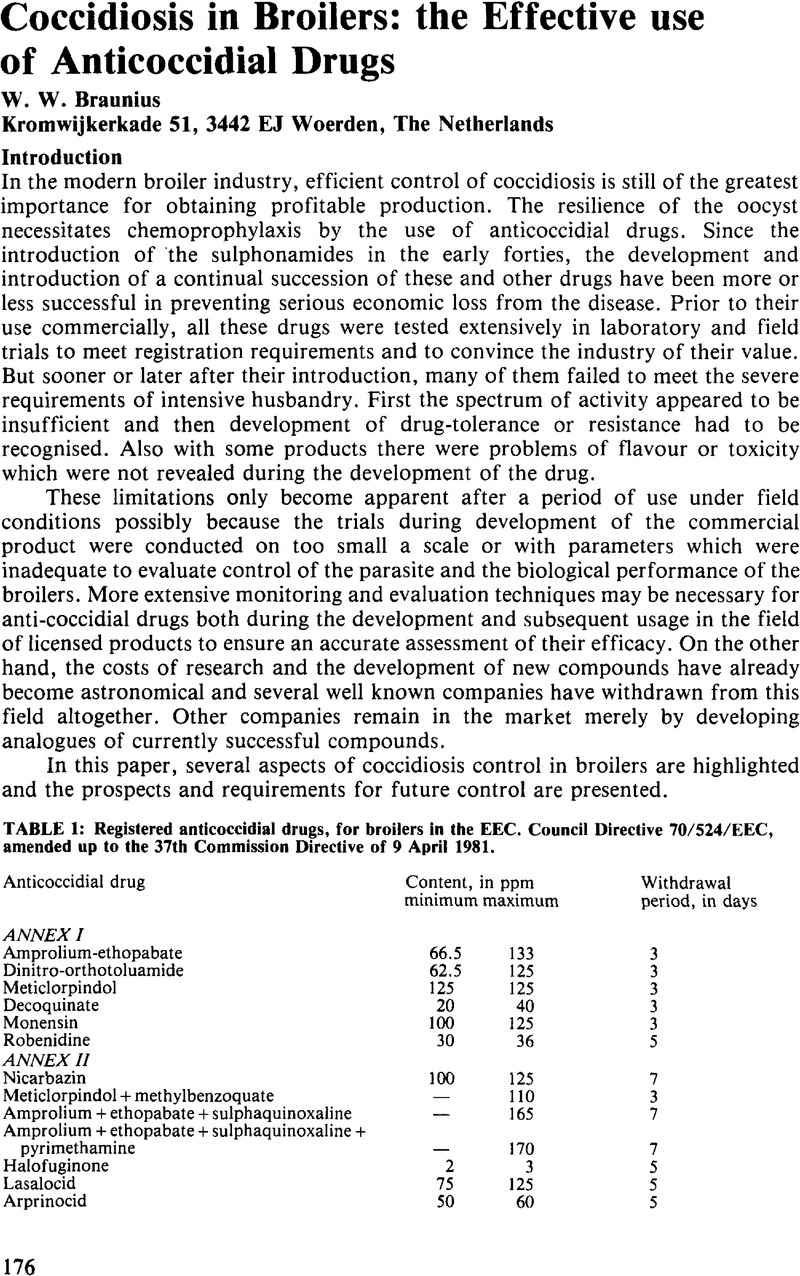Crossref Citations
This article has been cited by the following publications. This list is generated based on data provided by Crossref.
Braunius, W. W.
1985.
Ionophorous Anticoccidial Drugs in Coccidiosis Control.
World's Poultry Science Journal,
Vol. 41,
Issue. 3,
p.
198.
DOSORETZ, CARLOS
SCHLEIDER, ITZHAK
and
LAMED, RAPHAEL
1987.
Chicken Manure Methanogenesis..
Poultry Science,
Vol. 66,
Issue. 4,
p.
613.
Mehlhorn, H.
Dubremetz, J. F.
Peters, W.
Franz, M.
Taraschewski, H.
Voigt, W. P.
Walldorf, V.
and
Gustafsson, M. K. S.
1988.
Parasitology in Focus.
p.
161.
Raether, W.
1988.
Parasitology in Focus.
p.
739.
Daugschies, Arwid
Gässlein, Ursula
and
Rommel, Michel
1998.
Comparative efficacy of anticoccidials under the conditions of commercial broiler production and in battery trials.
Veterinary Parasitology,
Vol. 76,
Issue. 3,
p.
163.
Attree, Elizabeth
Sanchez-Arsuaga, Gonzalo
Jones, Michelle
Xia, Dong
Marugan-Hernandez, Virginia
Blake, Damer
and
Tomley, Fiona
2021.
Controlling the causative agents of coccidiosis in domestic chickens; an eye on the past and considerations for the future.
CABI Agriculture and Bioscience,
Vol. 2,
Issue. 1,
Aguiar-Martins, Kelsilandia
Burrell, Caela
Blake, Damer P.
and
Marugan-Hernandez, Virginia
2023.
Sustainable Use of Feed Additives in Livestock.
p.
399.



